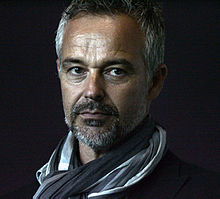
A game show is a genre of broadcast viewing entertainment where contestants compete for rewards. The shows are typically directed by a host, who explains the rules of the game as well as commentating and narrating where necessary. The history of the game shows dates back to the late 1930s when both radio and television game shows were broadcast. The genre became popular in the United States in the 1950s, becoming a regular feature of daytime television.

Hollywood Squares is an American game show in which two contestants compete in a game of tic-tac-toe to win cash and prizes. The show piloted on NBC in 1965 and the regular series debuted in 1966 on the same network. The board for the game is a 3 × 3 vertical stack of open-faced cubes, each occupied by a celebrity seated at a desk and facing the contestants. The stars are asked questions by the host and the contestants judge the truth of their answers to gain squares in the right pattern to win the game.

Match Game is an American television panel game show that premiered on NBC in 1962 and has been revived several times over the course of the last six decades. The game features contestants trying to match answers given by celebrity panelists to fill-in-the-blank questions. Beginning with the CBS run of the 1970s, the questions are often formed as humorous double entendres.
Dating game shows are game shows that incorporates a variety of matchmaking systems and services in the form of a game with clear rules. Human matchmaking is involved only in selecting the game's contestants, who are usually selected more for the amusement value than any concern for their happiness or compatibility. The audience sees only the game; an important feature of all dating game shows is that the contestants have little or no previous knowledge of each other, and are exposed to each other only through the game, which may include viewing a photograph or at least knowing the basic criteria for participation.
Remote Control is an American TV game show that ran on MTV for five seasons from 1987 until 1990. It was MTV's first original non-musical program and first game show. A concurrent syndicated version of the series ran during the 1989-90 season and was distributed by Viacom. Three contestants answered trivia questions on movies, music, and television, many of which were presented in skit format.
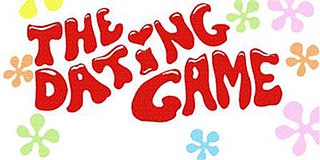
The Dating Game is an American television game show that first aired on December 20, 1965, and was the first of many shows created and packaged by Chuck Barris from the 1960s through the 1980s. ABC dropped the show on July 6, 1973, but it continued in syndication for another year (1973–1974) as The New Dating Game. The program was revived three additional times in syndication afterward, with the first from 1978 to 1980 as The All-New Dating Game, the second from 1986 to 1989, and the third from 1996 to 1999.
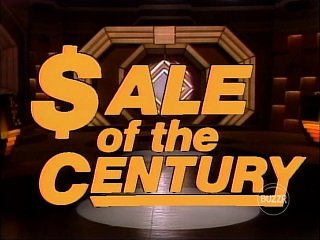
Sale of the Century is an American television game show that originally debuted on September 29, 1969, on NBC daytime. It was one of three NBC game shows to premiere on that date, the other two being the short-lived game shows Letters to Laugh-In and Name Droppers. The series aired until July 13, 1973, and a weekly syndicated series began that fall and ran for one season.
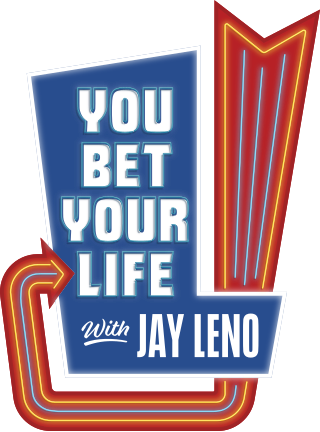
You Bet Your Life is an American comedy quiz series that has aired on both radio and television. The original version was hosted by Groucho Marx of the Marx Brothers, with announcer and assistant George Fenneman. The show debuted on ABC Radio on October 27, 1947, moved to CBS Radio debuting October 5, 1949, and went to NBC-TV and NBC Radio on October 4, 1950. Because of its simple format, it was possible to broadcast the show on both radio and television but not simultaneously. Many of the laughs on the television show were evoked by Groucho's facial reactions and other visual gimmicks; the two versions were slightly different. The last episode in a radio format aired on June 10, 1960. The series continued on television for another year, recording a season on September 22, 1960 with a new title, The Groucho Show.
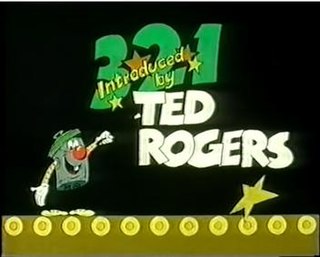
3–2–1 was a British game show that was made by Yorkshire Television for ITV. It ran for ten years, from 29 July 1978 to 24 December 1988, with Ted Rogers as the host.

Singled Out is an American dating game show created by Burt Wheeler & Sharon Sussman which originally ran on MTV from 1995 to 1998. Each episode was split between 50 single women competing for a date with one male contestant & 50 single men competing for a date with one female contestant.

Bert's Family Feud was an Australian game show remake based on the American show of the same name. The series was produced by Grundy Television in conjunction with FremantleMedia. It was broadcast on the Nine Network and hosted by Bert Newton. The title refers to host Bert Newton as the show intended to feature celebrities and their families as contestants.

Blind Date is a British dating game show first produced by London Weekend Television. An unscreened pilot was made with comic Duncan Norvelle as presenter but it was eventually hosted by Cilla Black, who already hosted the LWT series Surprise Surprise. Blind Date originally ran on Saturday nights from 30 November 1985 to 31 May 2003 on ITV.
A blind date is a romantic meeting between two people who have never met before. After a blind date they can decide either they want to be in a relationship or not.
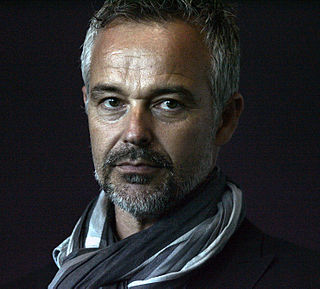
Cameron Peter Daddo is an Australian actor, musician and presenter. From 1987 to 1988, he hosted dating game show Perfect Match Australia. He won two Logie Awards for his performances in Golden Fiddles and Tracks of Glory. After moving to Los Angeles, Daddo played Brian Peterson in soap opera Models Inc.. He also starred in F/X: The Series, Hope Island and She Spies. He hosted the 2007 reality show Pirate Master on CBS. In 2020, Daddo joined the cast of Home and Away as Evan Slater. In addition to his acting career, Daddo is also a musician and radio host. He joined smoothfm in 2012 as the host of Sunday mornings, before moving on to host Mellow Music in the evenings.
Wheel of Fortune is an Australian television game show produced by Grundy Television until 2006, and CBS Studios International in 2008. The program aired on the Seven Network from 1981 to 2004 and January to July 2006, aired at 5:00pm from 1981 to 1989 and from 2004 to 2006 and at 5:30pm from 1989 to 2003, and is mostly based on the same general format as the original American version of the program.
Sale of the Century is an Australian game show that aired on the Nine Network from 14 July 1980 to 29 November 2001. It is based on both Great Temptation that aired from 1970 to 1974 and on the original Sale that first aired in the United States from 1969 to 1973. The Australian format of Sale has since been used internationally, including in a revived US version that aired from 1983 to 1989.
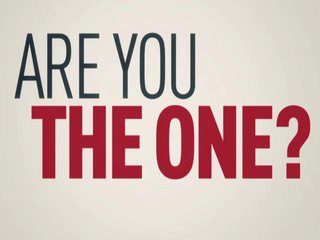
Are You the One? is an American reality television series featuring a group of men and women that are secretly paired into couples via a matchmaking algorithm. While living together, the contestants try to identify all of these "perfect matches." If they succeed, the entire group shares a prize of up to $1 million. All couples in the first seven seasons were male-female, while in the eighth season a contestant's match could be someone of any gender.
The Big Date is an American dating show hosted by Mark L. Walberg, which aired on the USA Network from June 17, 1996 to September 19, 1997. Notably, the series featured a young Jon Hamm as a contestant on one episode. Susan Powter and Hank Steinberg also appeared as participants.
Blind Date is an Australian television game show which was originally based on the American series The Dating Game.
Perfect Match is a reality dating series created by Chris Coelen and produced by Kinetic Content. It premiered on Netflix on February 14, 2023. In April 2023, the series was renewed for a second season.

